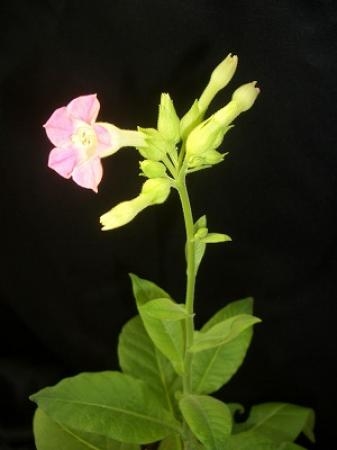Biological Science 2010/10/26
Professor Takashi Hashimoto and Assistant Professor Tsubasa Shoji
(Graduate School of Biological Sciences) have discovered master genes in
tobacco plants that regulate all known structural genes required to
synthesize the bioactive alkaloid nicotine. In tobacco cultivars with
low nicotine content, these master genes are deleted. Such genes may be
useful in engineering tobacco plants with reduced nicotine levels, and
in increasing the levels of pharmaceutical compounds in medicinal plants.
Although tobacco cultivars with very low nicotine content have been
produced by classical breeding, the molecular basis of these
low-nicotine phenotypes has been unclear. This study found that highly
similar transcription factor genes are clustered in one chromosomal
region of the tobacco genome, and that at least seven of them are
missing in the low-nicotine tobacco plants. These master genes are
shown to control all the tobacco genes encoding enzymes and transporters
that are necessary for the synthesis of nicotine. The study was
published online in the journal Plant Cell on October 19, 2010, and can be
accessed by clicking on the following link:
http://www.ncbi.nlm.nih.gov/pubmed/20959558
Since these tobacco master regulators of nicotine biosynthesis have very
similar structures to master regulators of anti-cancer alkaloid
biosynthesis in periwinkle, their counterparts may control the synthesis
of various bioactive chemicals in many medicinal plants.





